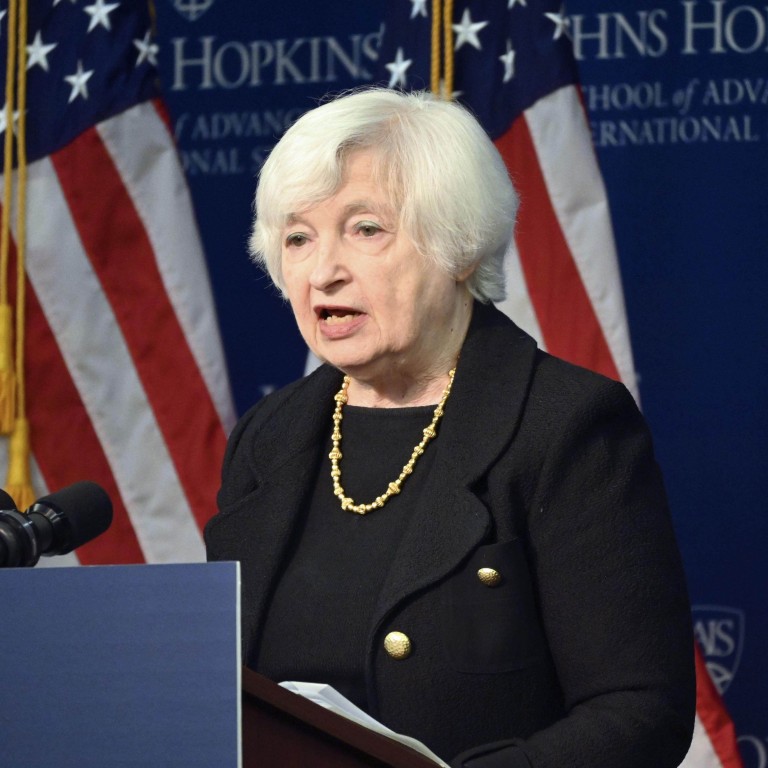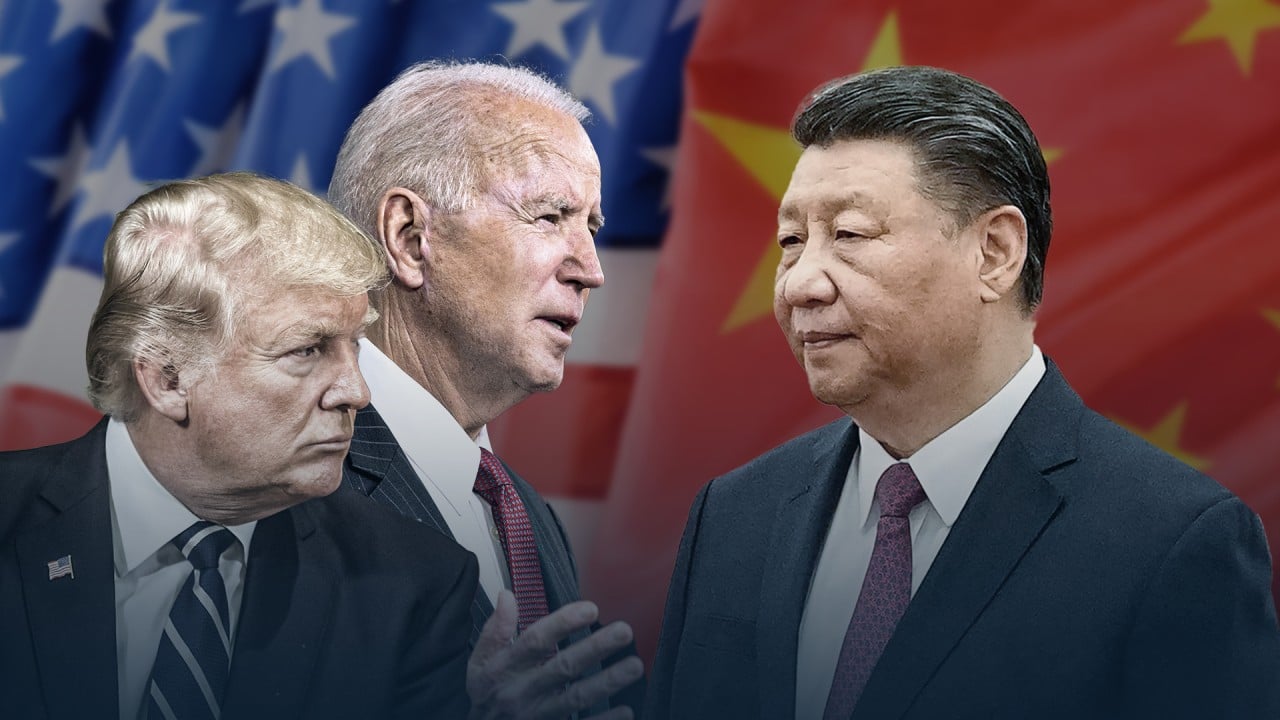
US economic war on China will have consequences for all, especially Americans
- Janet Yellen was right to frame prioritising national security concerns over economic ones as a trade-off, but she only hinted at the possible consequences
- Compromising trade and capital flows from China and elsewhere could result in slower economic growth, higher inflation and a weaker US dollar
That ended a 40-year emphasis on economics and trade as the anchor to the world’s most important bilateral relationship. Yellen’s stance on security was almost confrontational: “We will not compromise on these concerns, even when they force trade-offs with our economic interests.”
Yellen’s view is in line with the anti-China sentiment in the United States. The “new Washington consensus”, as Financial Times columnist Edward Luce calls it, maintains that engagement was the original sin of the US-China relationship because it gave China free rein to take advantage of America’s deal-focused naivety.
The US case rests not on hard evidence but on the presumption of nefarious intent tied to China’s dual-purpose military-civilian fusion. Yet the US struggles with its own security fusion – namely, the fuzzy distinction between US underinvestment in innovation and the real and imagined threats of Chinese technology.
Yellen is entirely correct in framing this shift as a trade-off, but she only hinted at the economic consequences of conflict. Quantifying these consequences is not simple.
The American public deserves to know what is at stake when its leaders rethink an important economic relationship. Some fascinating new research goes a long way toward addressing this issue.
Such actions result in “dual bloc” FDI fragmentation. The IMF estimates the formation of a US bloc and a China bloc could reduce global output by as much as 2 per cent over the longer term. As the world’s largest economy, the US will account for a significant share of foregone output.
European Central Bank President Christine Lagarde recently stressed a different channel through which an escalating US-China conflict could adversely affect economic performance. Drawing on research by ECB staff, she focuses on the higher costs and inflation resulting from supply chain disruptions implied by conflict-driven FDI fragmentation.
The ECB study concludes that geostrategic conflict could boost inflation by as much as 5 per cent in the short run and around 1 per cent in the longer term. Collateral effects on monetary policy and financial stability would follow.
Despite rebound in China’s exports, is a supply chain shift accelerating?

Lacking in savings and wanting to invest and grow, the US takes advantage of the dollar’s status as the world’s dominant reserve currency and imports surplus savings from abroad, running a massive current-account and multilateral trade deficit to attract foreign capital.
As such, US economic interests are tightly aligned with its outsize imbalances of trade and capital flows. Barring an unlikely resurgence of domestic US savings, compromising those flows for any reason has meaningful economic and financial consequences. The research cited above suggests those consequences will take the form of slower economic growth, higher inflation and possibly a weaker US dollar.
This is hardly an ideal outcome for a US economy that is already at a precarious point in the business cycle. The trade-off for national security should not be taken lightly, and neither should perceived threats to US national security be accepted on blind faith.



